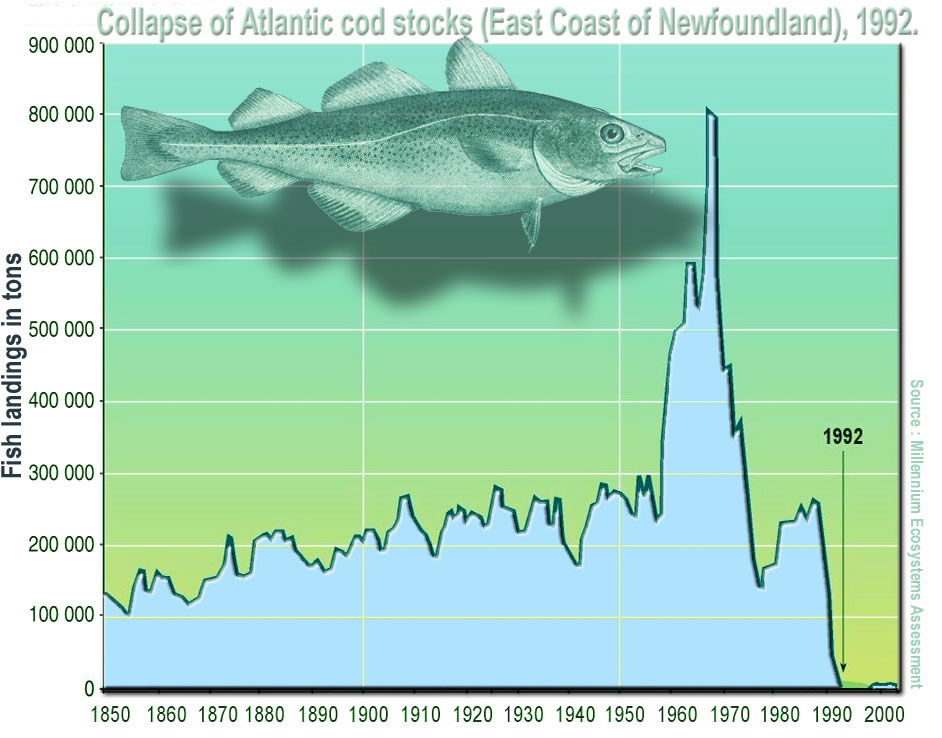Dr. Harold Hastings Releases Paper on Collapse of North Atlantic Cod Fishery
In his paper “Fishing Quotas, Induced Allee Effect and Fluctuation-Driven Extinction” (Nonlinear Dynamics in Psychology and the Life Sciences, 2016, to appear), Harold M. Hastings, adjunct professor in science, mathematics, and computing, and professors Michael Radin and Tamas Wiandt at Rochester Institute of Technology, explored how harvest strategies and environmental fluctuations together affect the likelihood of fishery collapse. The team found that universal mathematical scaling rules demonstrates that the likelihood of collapse depends sensitively upon harvest strategy and environmental fluctuations. It's a result which may grow in importance “as global climate change renders knowledge of past patterns less meaningful,” said William B. Gail in a New York Times article. In particular, we may have to choose between a modest reduction in sustainable harvest or an increased likelihood of fishery collapse as a result of global warming.

Chart source: Millennium Assessment Organization
Due to a massive increase in harvest, the North Atlantic cod fishery, a one-time thriving operation, collapsed in the early nineties. The cod fishery has yet to recover. Fisheries provide much of the world’s protein, and many are threatened by a combination of overfishing and global climate change. According to the Millennium Ecosystem Assessment study which inspired Dr. Hastings' research, harvests from the North Atlantic cod fishery doubled from 130,000 tons (average) per year in the 1850s to 275,000 tons (average) per year a century later. It peaked in the late sixties to 800,000 tons per year. Harvests dropped to 200,000 tons per year, and appeared to stabilize before collapsing in 1992. As a result, the price of cod now rivals salmon in many markets.
Dr. Hastings' research focuses on the dynamics of complex real systems. During his 48-year career, he received both a National Science Foundation Fellowship and a Woodrow Wilson Fellowship. He published over 100 journal articles, and wrote three books – including Fractals: A User's Guide for the Natural Sciences - which he wrote with G. Sugihara (Oxford University Press). He also directed research grants from the Department of Energy, the National Science Foundation, and the National Institutes of Health.